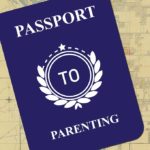 As parents and caregivers, we are all committed to raising healthy and substance free children. But, how do we do that? We know that the greatest influencers in children’s lives are their parents and other caring adults. Research shows the parents who talk with their kids about alcohol and drugs contribute significantly to a child’s decision to be substance free. Another contributing factor is parents who set and enforce clear rules and expectations.
As parents and caregivers, we are all committed to raising healthy and substance free children. But, how do we do that? We know that the greatest influencers in children’s lives are their parents and other caring adults. Research shows the parents who talk with their kids about alcohol and drugs contribute significantly to a child’s decision to be substance free. Another contributing factor is parents who set and enforce clear rules and expectations.
Starting these conversations with children can be difficult and uncomfortable for parents and other adults who care for or about children. But, it’s necessary. The following steps will help you prepare for those difficult conversations:
#1 It’s NEVER too early to talk to your child.
#2 Make every opportunity a teachable moment.
#3 Educate yourself on the topic of conversation.
#4 Consider your child’s reactions and ways you might respond to certain questions or feelings.
#5 Choose a time where you and your child can sit down with any distractions.
#6 Remember, this is a conversation, NOT a lecture.
#7 Do NOT use scare tactics. Simply discuss the consequences without overstating the case.
3-5 Year Olds: The relationships and habits formed at this age will shape decisions made later. Start your conversations early and stick with it. Modeling what they see in adults is one way they learn expected behaviors.
- Point out poisonous and harmful household substances and explain why children should only put good things into their bodies.
- Discuss why children need healthy food and explain the importance of making good decisions about what should and should not go into their bodies.
- Explain how medicines prescribed by a doctor for illness are drugs that can help the person get better, but can be harmful if misused.
6-8 Year Olds: Children at this age are exposed to alcohol, tobacco, and prescription drugs early on. This is an important time to help your kids understand what is harmful vs. what is helpful.
- Be a good role model and set a good example. Do not make drinking a focus of social gatherings when kids are present. It’s never okay to ask your child to get you a beer or other alcoholic beverage.
- Establish the ground rules for your family and make sure your child understands “It is never okay for kids in our family to use illegal drugs or to drink alcohol.”
- Introduce the idea of addiction – that drug and alcohol use can be very difficult to stop.
- Explain why adults may drink alcohol, but children may not: “It’s illegal for children and it harms a child’s ability to learn and develop important social skills.”
- Explain that your child should only take medicine from a trusted adult.
- Explain that they should not share medication or take someone else’s medications.
- Explain how drugs/medicine can make a person feel, the risk of taking too much, and the damage drugs/medicine can cause in the long run.
9-11 Year Olds: At this age, it is important to cherish your relationship with your child as he or she grows and changes during these years. Listen carefully to what your child is saying and experiencing. They may begin to experience different pressures with school and friends, as well as high emotions.
- Open your house as a safe and drug-free gathering place for young people. Get to know your child’s friends and their parents.
- Keep communication open in all areas, even if it is difficult or embarrassing.
- Establish daily family rituals for connecting with your children that will continue throughout youth.
- Encourage your child to participate in personal interests and set personal goals.
- Explain that it is okay for your child to experience different emotions and help them find ways of dealing with those emotions and stress.
- Help your child find self calming techniques.
- Talk with your children about why they think young people might use substances, and why it is not a good choice no matter the reason, and that you expect them NOT to use.
- Brainstorm with your child about the consequences of using substances. Ask them: “What can happen to kids if they use?”
- Explain that all medications should stay in their original containers to avoid confusion with candy or other medications.
- Explain that their brain is still developing and that using any substances will have harmful effects on how the brain functions. Be factual. Don’t exaggerate.
Make no mistake that, though these conversations can be difficult, they are critical. You, being a primary caretaker, in a child’s life, can make a profound difference. A lot of prevention is directly related to healthy relationships and effective communication. YOU are the most important protective factor in keeping your child substance free. Start investing now!
Part 2 (Ages 12-18) will be next month!




















